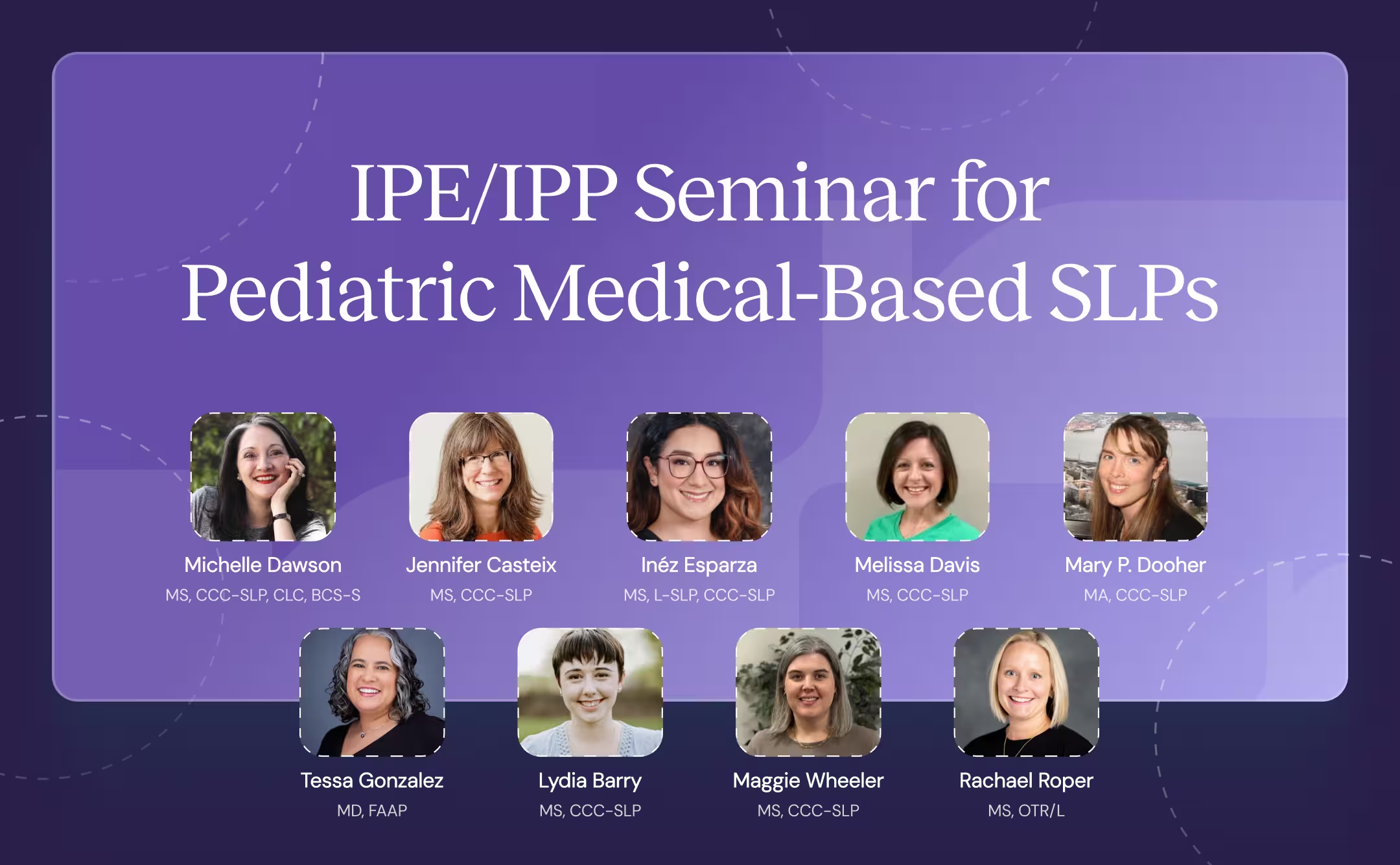Collaboration in medical and private practice settings often comes with unique challenges, from coordinating across disciplines to empowering caregivers with the tools they need. This expanded six-hour seminar features an all-star lineup of presenters, moderated by Michelle Dawson, MS, CCC-SLP, CLC, BCS-S, who bring real-world experience and evidence-based strategies to help pediatric medical-based SLPs strengthen their interprofessional practice (IPP).
Throughout the day, you will explore how to apply adult learning principles to support caregivers and colleagues, collaborate effectively with interpreters and occupational therapists, and build stronger partnerships with pediatricians and other healthcare professionals.
You will leave with practical tools to enhance communication, streamline care coordination, and create team-based plans that meet the needs of children with complex medical profiles.
When collaboration works, children thrive, and this seminar will show you how to make it happen.
Throughout the day, you will explore how to apply adult learning principles to support caregivers and colleagues, collaborate effectively with interpreters and occupational therapists, and build stronger partnerships with pediatricians and other healthcare professionals.
You will leave with practical tools to enhance communication, streamline care coordination, and create team-based plans that meet the needs of children with complex medical profiles.
When collaboration works, children thrive, and this seminar will show you how to make it happen.



















